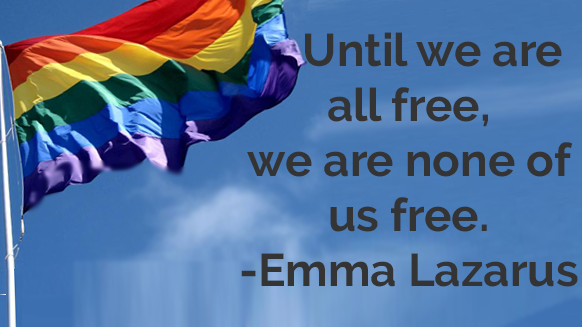Not Just Ferguson

I’ve been thinking a lot about Michael Brown. About what’s been happening in Ferguson, Missouri. Not to mention what didn’t happen. And now about Eric Garner, whose death by New York police chokehold we’ve just learned led to no indictment either.
Maybe you have, too. It all doesn’t go so neatly with the winter holiday season ahead, but these killings hang over this country and we cannot, as we too often have, brush the tragedies away.
Precisely what took place during those fateful minutes back in the Missouri summer may not ever be known for certain. What we do know is that we’re left with another police killing of an unarmed African American man – with no one held accountable. The family of Michael Brown is left to wonder why a prosecutor chose not to push for indictment, why a governor did not name a special prosecutor. We’re all left – at the very least – with doubts that the outcome would have been the same had Michael Brown been white or Darren Wilson black. And the news that no charges will be brought in Eric Garner’s death raises at least as many – and as disturbing – questions.
More than these alone
Justice -and injustice – in the death of Michael Brown matters. A great deal. So does justice and injustice in the death of Eric Garner. At the same time, irrespective of either grand jury’s decision, we can’t look at these in isolation. They have to be seen in the context of race in America. In the context of an America in which black men are more likely to die at the hands of law enforcement than white men; an America in which African American parents routinely warn their sons about danger from the police. Not to mention an America where the wealth of the average Latino or African American household is but a fraction that of white households, and where educational opportunities for so many students of color still badly lag those for white ones.
History – and a time to look at ourselves
Of course this is – or ought to be – deeply troubling to everyone simply as citizens and as human beings. And it should certainly matter to LGBT people. More than a third of LGBT people identify as people of color, a portion that grows even larger in younger age groups. And while police misconduct against people of color and against LGBT people (as LGBT people) can’t be equated, we should know something about the reality of police abuse. It takes little historical digging to remember that the LGBT movement has also fought decades of police bias. Today, even as many police departments have improved, that’s still true in hundreds of states, cities, and towns from Florida to California (and especially for transgender people and LGBT people of color).
This is also a time for us to be honest about bias in our own community. Lots of studies have shown that prejudice can shade our attitudes and actions even when our conscious beliefs are avowedly not biased. How might that show up? Could that be, for instance, partly why so few LGBT organizations are led by people of color? Or why so many LGBT people of color talk about experiencing racism in our community? Could it partly explain why the movement’s central priorities haven’t generally included issues like the rates of HIV infection among young gay and bi men of color or the disproportionate poverty that affects LGBT African Americans and Latinos?
What are we fighting for?
Horizons Foundation believes – as do I – that what we’re fighting for is more than legal equality based on sexual orientation and gender identity. We’re working for a society in which LGBT people – and all people – are able to live lives characterized by dignity, equality, and justice. That means in every aspect of their lives. And that means – and Ferguson means – we still have a long, long way to go.
As Emma Lazarus famously stated, “Until we are all free, we are none of us free.”


